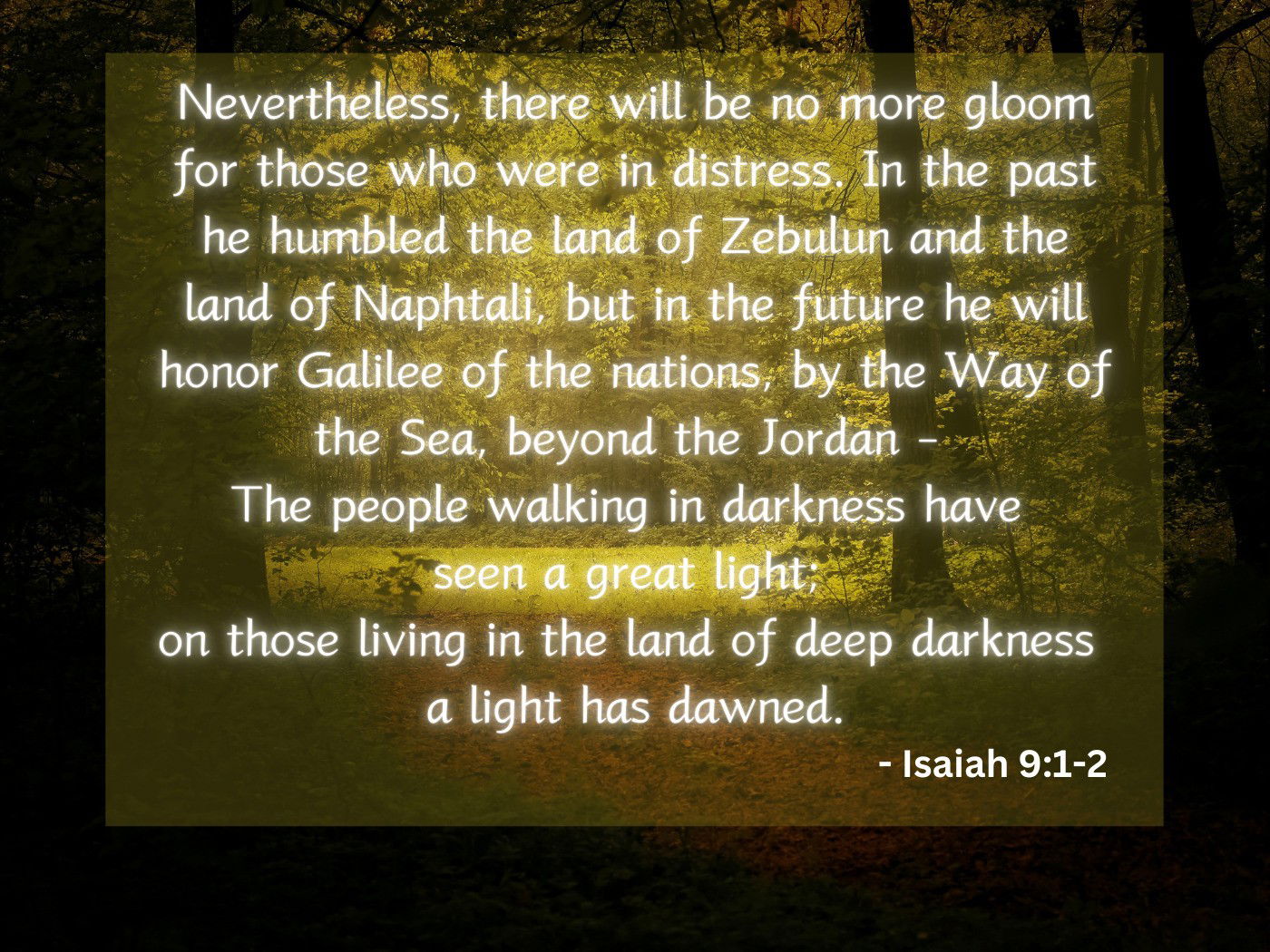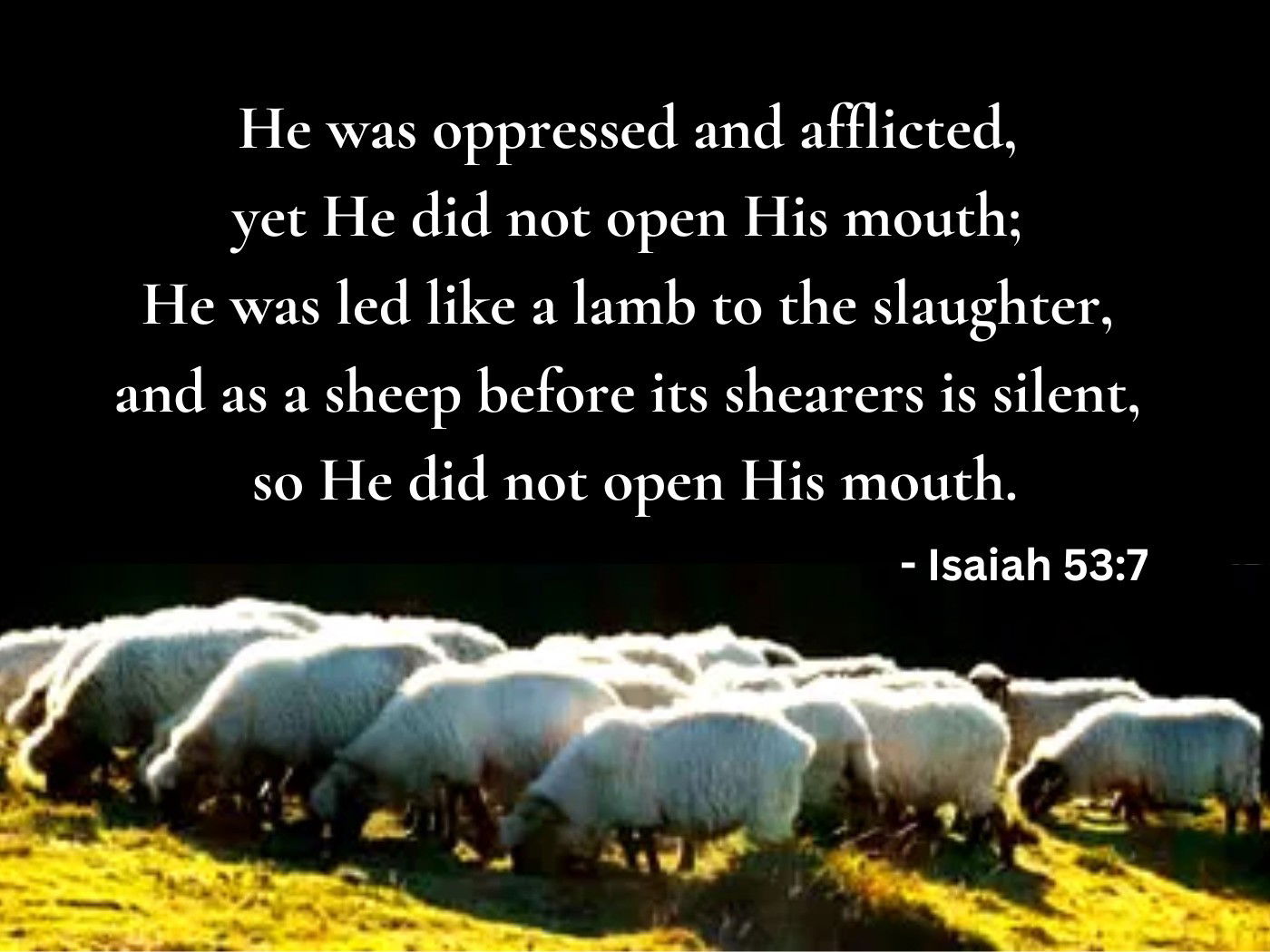We know that Jesus is the Savior promised by God because He fulfilled the prophecies of the Old Testament. Several prophets, men who spoke on behalf of the Lord, announced the Savior sent by God to rescue humanity from its sins.
The prophecies are predominantly found in prophetic books, but also in other literary genres of the Bible, starting from Genesis to Revelation. There are hundreds of prophecies about Jesus in the Old Testament that were fulfilled in His first coming. However, there are also biblical prophecies about the second coming of Jesus and the end times that have not yet been fulfilled.
1. The "Seed of the Woman"
And I will put enmity between you and the woman, and between your offspring and hers;
he will crush your head, and you will strike his heel.”
- Genesis 3:15
From the very first book of the Bible, we find a prophecy about the Savior. After the fall of Adam and Eve, deceived by the serpent, God Himself declared that the "Seed of the Woman" would crush the head of the serpent. The reference to the heel being struck by the serpent alludes to the suffering (nails on the cross) caused by sin and death to save humanity.
Thus, Christians believe that this reference, known as the "protoevangelium," is the first declaration of Jesus' victory over Satan and the forces of evil.
2. Born of a Virgin
Therefore the Lord himself will give you a sign: The virgin will conceive and give birth to a son, and will call him Immanuel.
- Isaiah 7:14
The birth of the Son of God occurred through a miraculous process. He, being eternal, came in human form and was born as a humble baby, from a virgin conception. This was one of the most marvelous signs fulfilled in Jesus Christ, also confirmed in Matthew 1:23.
3. Ministry of Jesus in Galilee

Nevertheless, there will be no more gloom for those who were in distress. In the past he humbled the land of Zebulun and the land of Naphtali, but in the future he will honor Galilee of the nations, by the Way of the Sea, beyond the Jordan - The people walking in darkness have seen a great light; on those living in the land of deep darkness a light has dawned.
- Isaiah 9:1-2
The ministry of Jesus began and spread largely in the region of Galilee, along the Jordan River and near the sea. The people of that locality saw the Light of God shine. They heard the message of Salvation and the Kingdom of God, and received healings, great miracles, and wonders performed by Jesus Christ (see also Matthew 4:15-16).
4. God With Us: "A Child is Born to Us"
For to us a child is born, to us a son is given, and the government will be on His shoulders. And He will be called Wonderful Counselor, Mighty God, Everlasting Father, Prince of Peace. Of the greatness of His government and peace there will be no end. He will reign on David’s throne and over His kingdom, establishing and upholding it with justice and righteousness from that time on and forever. The zeal of the Lord Almighty will accomplish this.
- Isaiah 9:6-7
Another reference regarding the incarnation of the Messiah. The child who was born and given, named Wonderful Counselor, Mighty God, Everlasting Father, and Prince of Peace, will govern eternally with justice. These names describe the characteristics and role of the Messiah, which were fulfilled in Jesus. The allusion to the throne of David is another prophecy fulfilled concerning the genealogy of Jesus. Jesus' earthly father, Joseph, was from the tribe of Judah, part of the lineage of King David.
5. Jesus Taught Through Parables

I will open my mouth with a parable; I will utter hidden things, things from of old
- Psalm 78:2
In this Psalm of Asaph, we see a poetic message warning the people to listen to the Word of the Lord. In this sense, it can also be considered a prophetic anticipation of the living Word, the Son of God. Jesus proclaimed the divine Word using resources such as parables, clarifying enigmas and values still hidden about God.
Jesus became known for teaching the people with parables. Parables and proverbs were teaching methods used to give practical examples, using everyday situations from people's lives. However, Jesus made an even deeper use of parables. He told various stories to illustrate and teach about the Kingdom of God in a simple and clear manner.
6. Jesus, Descendant of David
Your house and your kingdom will endure forever before me; your throne will be established forever.
- 2 Samuel 7:16
God made a promise to David that from his lineage, an eternal kingdom would come. By God's providence, Jesus was indeed a descendant of King David's family. His genealogy recorded in the Gospels (Matthew and Luke) confirms precisely this - that Jesus was of the Davidic line. The Son of God and Savior is the promised Messiah, and His kingdom will be eternal.
This is the genealogy of Jesus the Messiah the son of David, the son of Abraham
- Matthew 1:1
The Evangelist Matthew, at the opening of his Gospel, mentions two important ancestors of Jesus, Abraham and David. The well-known reference "Son of David" is directly related to the prophecy concerning the origin of the Messiah. He would come from the "House of David," the second king of Israel, a man after God's own heart.
7. Triumphal Entry of Jesus into Jerusalem

Rejoice greatly, Daughter Zion! Shout, Daughter Jerusalem! See, your king comes to you, righteous and victorious, lowly and riding on a donkey, on a colt, the foal of a donkey.
- Zechariah 9:9
On Palm Sunday, Jesus entered Jerusalem riding on a donkey, hailed by the joyful crowd. This prophecy from Zechariah announced the arrival of the victorious King, yet humble, on a young donkey. The expectation of the Jews was for the arrival of an imposing king, perhaps on a warhorse, to combat political powers. But Jesus came to liberate the people from a terrible spiritual empire capable of killing, stealing, and destroying. Jesus is the liberating Messiah from the slavery of sin and evil.
8. Silence Before His Accusers

He was oppressed and afflicted, yet He did not open His mouth; He was led like a lamb to the slaughter, and as a sheep before its shearers is silent, so He did not open His mouth.
- Isaiah 53:7
When Jesus was arrested, He did not respond to the accusations made by His enemies to condemn Him. In this way, He fulfilled the prophecy of Isaiah, remaining silent like a lamb led to the slaughter. Indeed, He is the Lamb of God who takes away the sin of the world.
Anyone would try to defend themselves against unjust accusations, but Jesus endured everything out of love, to pay the price for our punishment. He suffered oppression, humiliation, and affliction so that everyone who believes in Him has access to God and salvation from final punishment.
9. "My God, My God, why have you forsaken me?"
My God, my God, why have you forsaken me? Why are you so far from saving me, so far from my cries of anguish?
- Psalm 22:1
The opening of this messianic psalm by David is known for conveying a sense of abandonment, which both he and Jesus experienced. With these same words, in Aramaic, Jesus expressed His state of anguish and desolation, feeling distant from the Father during the crucifixion.
And at three in the afternoon Jesus cried out in a loud voice, “Eloi, Eloi, lema sabachthani?” (which means “My God, my God, why have you forsaken me?”).
- Mark 15:34
10. Pierced Hands and Feet

Dogs surround me, a pack of villains encircles me; they pierce my hands and my feet.
- Psalm 22:16
Soldiers pierced Jesus' hands and feet with nails on the cross. The terrible suffering of Jesus seems to continue to be described in this Psalm of David. During the time He was punished, Jesus was surrounded by accusers, wicked soldiers, and people who despised and mocked Him. Additionally, He was crucified between two wrongdoers, with His hands and feet nailed to the cross.
11. Jesus Was Despised and Humiliated
He was despised and rejected by mankind, a man of suffering, and familiar with pain. Like one from whom people hide their faces He was despised, and we held Him in low esteem.
- Isaiah 53:3
Jesus came into the world, but He was rejected by men (John 1:11). The prophet Isaiah, in chapter 53, describes the suffering of the Suffering Servant, the Lord's Anointed who bore pain and humiliation in our place. Psalm 22:6-8 also describes this sacrificial characteristic of Jesus, who suffered on the cross for the sins of humanity.
12. Mockery Against Jesus on the Cross

.... scorned by everyone, despised by the people. All who see e mock me; they hurl insults, shaking their heads. “He trusts in the Lord,” they say, “let the Lord rescue him. Let him deliver him, since he delights in him.”
- Psalm 22:6-8
Jesus' enemies mocked Him, unknowingly fulfilling the prophecy with their insults.
Those who passed by hurled insults at him, shaking their heads and saying, “You who are going to destroy the temple and build it in three days, save yourself! Come down from the cross, if you are the Son of God!” In the same way the chief priests, the teachers of the law and the elders mocked him.“He saved others,” they said, “but he can’t save himself! He’s the king of Israel! Let him come down now from the cross, and we will believe in him. He trusts in God. Let God rescue him now if he wants him, for he said, ‘I am the Son of God.’” In the same way the rebels who were crucified with him also heaped insults on him.
- Matthew 27:39-44
13. They Cast Lots for Jesus' Clothes

They divide my clothes among them and cast lots for my garment.
- Psalm 22:18
The soldiers who crucified Jesus mocked Him by putting a scarlet robe on Him, placing a crown of thorns on His head, and giving Him a staff in His hand. In irony, they said, "Hail, King of the Jews!" After this, they decided to divide the Lord's clothes among themselves and cast lots for His tunic to see who would keep it. David prophesied about this in Psalm 22.
14. They Offered Jesus Gall and Vinegar to Drink
They put gall in my food and gave me vinegar for my thirst.
- Psalm 69:21
Gall and vinegar appeared as elements that intensified Christ's torture during His crucifixion. Jesus was thirsty on the cross, and someone offered Him vinegar mixed with gall. Psalm 69, like Psalm 22, also conveys this prophetic record about the lament of the Messiah who would suffer (see: Matthew 27:34, 48; John 19:28-29).
15. The Resurrection
Because you will not abandon me to the realm of the dead, nor will you let your faithful one see decay.
- Psalm 16:10
Jesus died, but on the third day, He rose again! Some time after His resurrection, Jesus ascended to Heaven, and His body did not undergo decay. This was the most wonderful proof of Christ's victory over death. He is the Redeemer, the first to rise. He will grant resurrection to all who believe.
Jesus said to her, “I am the resurrection and the life. The one who believes in me will live, even though they die;
- John 11:25
In addition to these, there are hundreds of prophecies about the Savior sent by God. Scholars point to over 300 verses about Christ from Genesis to Revelation. Jesus, the Son of God, fulfilled them all. Others will still be fulfilled, such as the prophecy of His second coming. All of this is important for us to believe that Jesus is indeed the Wonderful Messiah, sent by God to save us.
Jesus proved to be the Savior of the world that God had promised centuries before!
Continue learning about the word of God:
